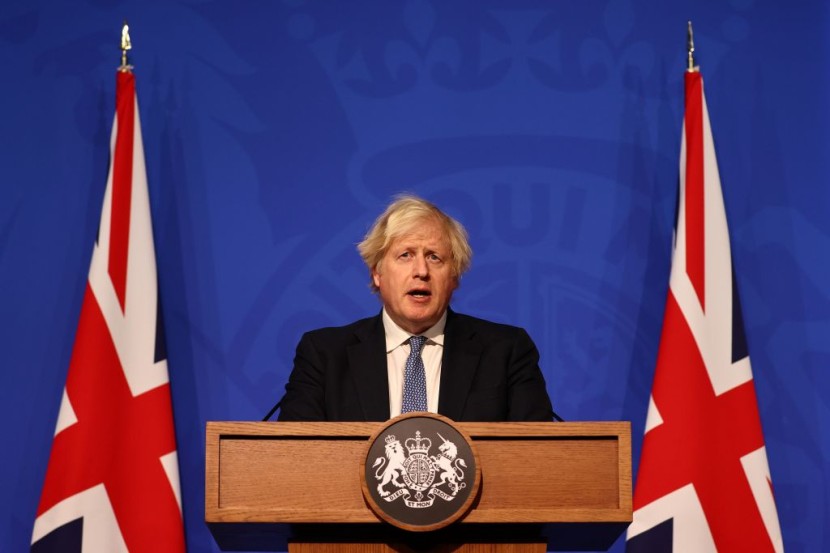
After claiming that the country's Omicron surge had crested, British Prime Minister Boris Johnson will try to lift all COVID-19 restrictions by March. Some limitations have already been abolished in the United Kingdom, with Scotland reopening nightclubs and removing hospitality restrictions as of January 24.
In order to save his faltering government with populist ideas, Johnson intends to take the next steps and rip back all restrictions over the next two months. Starting January 27, the government will stop recommending people to work from home and will eliminate the unpopular COVID-19 permit as well as the necessity to wear face masks wherever in England.
Britain to lift most COVID-19 restrictions
Most importantly, Johnson stated that the government will no longer enforce the legal obligation for those who test positive for COVID-19 to self-isolate. According to current plans, the ban would end on March 24, but the government will decide on whether or not to extend the deadline.
He emphasized that these alterations should not be viewed as "the end" because the virus and subsequent versions cannot be eliminated, which means that people must learn to live with COVID-19 in the same manner that we live with flu, according to Fox News.
It comes after weeks of humiliating revelations about parties held in Downing Street during the lockdown that jeopardized the Prime Minister's position, with recent surveys indicating that public trust in Boris Johnson is at an all-time low. Now it has been revealed that Johnson is attempting to salvage his leadership by recruiting dissident MPs from the 2019 "Red Wall" intake.
MPs are coming together to submit letters to the 1922 Committee, expressing their displeasure with the Prime Minister for attending parties during the lockdown and failing to stop the scandal, which may lead to a vote of no confidence. The exact number of letters received by the committee's head, Sir Graham Brady, is unclear, and the chairman of the 1922 Committee has stated that not even his wife knows the count.
When asked on January 17 in a YouGov survey, "How well is Boris Johnson doing as Prime Minister?" "Badly," answered 78 percent of respondents. Only 22% of those polled indicated he was doing well, and 5% said they didn't know.
Women were more critical of the Prime Minister than men, with 74% of women saying he wasn't doing a good job and 71% of males agreeing. Conservative voters are more critical of Prime Minister David Cameron, with 46% saying he is doing well and 50% believing he is doing badly, Express reported.
Read Also : North Korea Fires Tactical Guided Missiles in Showcase of Force, Flouts Threat of New Sanctions
Pressure grows for PM Boris Johnson
Johnson risks not just public criticism but also the possibility of being ousted from his own Conservative Party after it was revealed that he attended multiple parties in Downing Street in mid-to-late 2020, when COVID-19 pandemic lockdowns were just getting started.
Johnson said he was unaware that the gathering on May 20, 2020, was in violation of COVID-19 guidelines. Despite the fact that the next election for Prime Minister isn't until 2024, Johnson faces the risk of being ousted from office by his own party, which has a history of dismissing leaders who are "liabilities."
To force a vote of no confidence, 54 of the 360 Conservative MPs (or 15%) would have to submit letters to the party's 1922 Committee chairman seeking it. If the party elects someone to take Johnson's position as leader, that person will also become Prime Minister.
If a vote of no confidence were to be held, Johnson would contest it. Approximately 20 MPs have stated that they intend to file no-confidence letters, and many more have already done so. According to our research, 58 Conservative members of parliament have publicly chastised Johnson. It would move forward if all of them signed letters in support of a no-confidence vote.
Member of Parliament Christian Wakeford, who just switched to the Labour Party, is another thorn in Johnson's side. Johnson defended his administration during the hearing on Wednesday, highlighting its COVID-19 booster rollout, which he said was the quickest in Europe, and its unwillingness to close for the holidays, as per Newsweek via MSN.
Related Article : Boris Johnson Admin Set To Announce New Measures To Help Struggling Britons From Paying Rising Energy Bills
@YouTube








